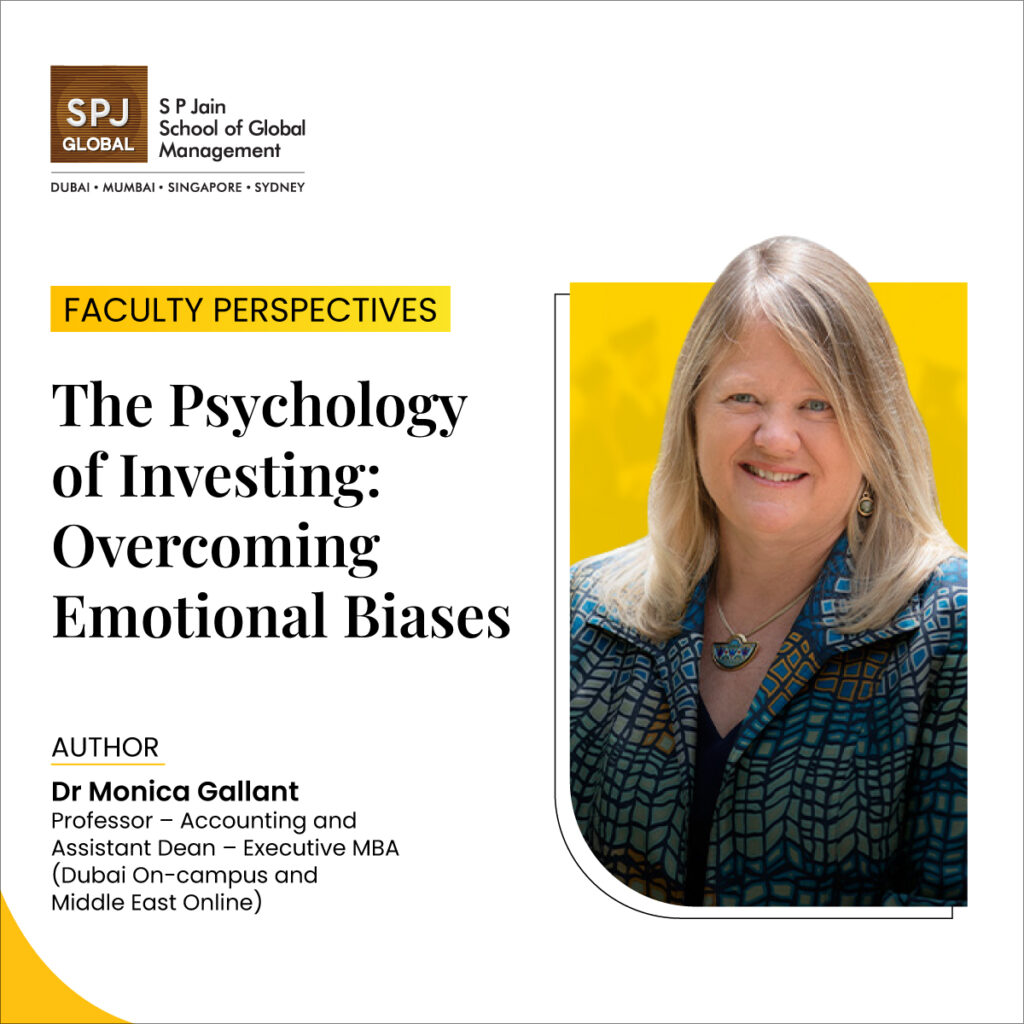The Psychology of Investing: Overcoming Emotional Biases

Investing is more than just numbers, charts, and market analysis—it’s also deeply psychological. Many investors, both beginners and seasoned professionals, fall prey to emotional biases that lead to costly mistakes. Understanding and overcoming these biases is the key to making rational, informed decisions that lead to long-term financial success.
1. Loss Aversion
One of the most powerful emotional biases in investing is loss aversion. Studies show that people feel the pain of losing money twice as intensely as the pleasure of making money. This often leads investors to hold onto losing stocks for too long, hoping they’ll recover, or to sell winning stocks too early, fearing they might drop. In the early 2000s, many investors held onto Yahoo shares despite the company’s decline after the dot-com bubble burst. They refused to sell at a loss, hoping for a rebound that never fully materialised. To overcome loss aversion, investors should set clear investment goals and stick to them. Using stop-loss orders can help minimise downside risk, and reframing losses as learning opportunities rather than failures can create a healthier mindset.
2. Herd Mentality
Herd mentality is another common bias that leads investors to follow the crowd, often buying into overpriced stocks at their peak or panic-selling when the market drops. In early 2021, GameStop (GME) stock skyrocketed as a group of retail investors on a Reddit platform bought shares in large numbers, causing hedge funds that had bet against the stock to buy back shares at higher prices, which sent the stock soaring in what became a historic short squeeze. Many latecomers bought at the peak due to fear of missing out, only to suffer losses when the stock eventually fell. The best way to counteract herd mentality is to conduct independent research before making investment decisions. Developing a clear investment plan based on fundamentals rather than hype and considering contrarian investing can provide better opportunities.
3. Overconfidence Bias
Many investors overestimate their knowledge and ability to predict the market, a phenomenon known as overconfidence bias. Before the 2008 financial crisis, investors and financial institutions believed housing prices would never drop, leading to excessive risk-taking in mortgage-backed securities. This overconfidence contributed to the global financial collapse. To combat this, keeping a trading journal to track investment decisions and learning from mistakes can be useful. Diversifying a portfolio reduces risk exposure, and seeking guidance from financial professionals before making major investment moves can help avoid unnecessary risks.
4. The Anchoring Effect
The anchoring effect occurs when investors fixate on a particular price point, such as the price they originally paid for a stock, and base their decisions on that number rather than current market conditions. Investors who bought Bitcoin near its all-time high of ~$69,000 in late 2021 often anchored their expectations to that price, refusing to sell even as Bitcoin dropped below $20,000 in 2022, waiting for it to recover. Evaluating investments based on future potential rather than past prices, using fundamental analysis, and accepting that markets fluctuate are essential steps in overcoming the anchoring effect.
5. Confirmation Bias
Confirmation bias leads investors to seek information that confirms their existing beliefs while ignoring contradictory data. Investors in Theranos, the health-tech company led by Elizabeth Holmes, ignored red flags and negative reports because they wanted to believe in its groundbreaking potential. Many only realised their mistake after the company collapsed. To counter confirmation bias, investors should actively seek opposing opinions and alternative perspectives, follow a balanced mix of news sources, analysts, and financial reports, and regularly challenge their assumptions for better, more informed decision-making.
6. Recency Bias
Recency bias leads investors to give more importance to recent events than historical trends. When markets crashed in March 2020 due to the COVID-19 pandemic, many investors assumed the downturn would last for years. However, those who maintained a long-term view or invested in the dip saw significant gains as the market rebounded rapidly. Looking at long-term market trends, setting predefined investment rules to keep emotions in check, and remembering that markets move in cycles can help investors avoid falling into the trap of recency bias.
7. The Sunk Cost Fallacy
The sunk cost fallacy causes investors to hold onto bad investments simply because they’ve already invested money in them, fearing that selling would mean admitting failure. Investors in Eastman Kodak held onto their shares long after digital photography overtook film, refusing to accept that the company’s core business was declining. Many suffered significant losses as the stock continued to fall over the years. To move past the sunk cost fallacy, it is important to separate emotions from investment decisions, evaluate each investment objectively based on current data, and recognise that selling a bad investment frees up capital for better opportunities.
Overcoming emotional biases in investing requires self-awareness, discipline, and a structured approach. By acknowledging these biases and implementing strategies to mitigate them, investors can make more rational, data-driven investment decisions. The key is to stay focused on long-term success rather than short-term emotions.
If you’re serious about improving your investing psychology, consider enrolling in a Wealth Management program where you can learn how to develop a disciplined approach to investing, avoid common emotional pitfalls, and make smarter financial decisions. Through expert guidance, interactive lessons, and real-world case studies, you’ll gain the confidence needed to navigate the markets successfully.
Ready to take control of your investing emotions? Start by reviewing your portfolio today and identifying areas where emotional biases may be influencing your decisions. The more aware you are, the better investor you’ll become!
About the Author:
Dr. Monica Gallant is the Professor of Accounting and Assistant Dean of the Executive MBA program (Dubai On-campus and Middle East Online) at SP Jain Global. She is a Chartered Professional Accountant and holds a Doctorate in Education from the University of Southern Queensland, Australia.




